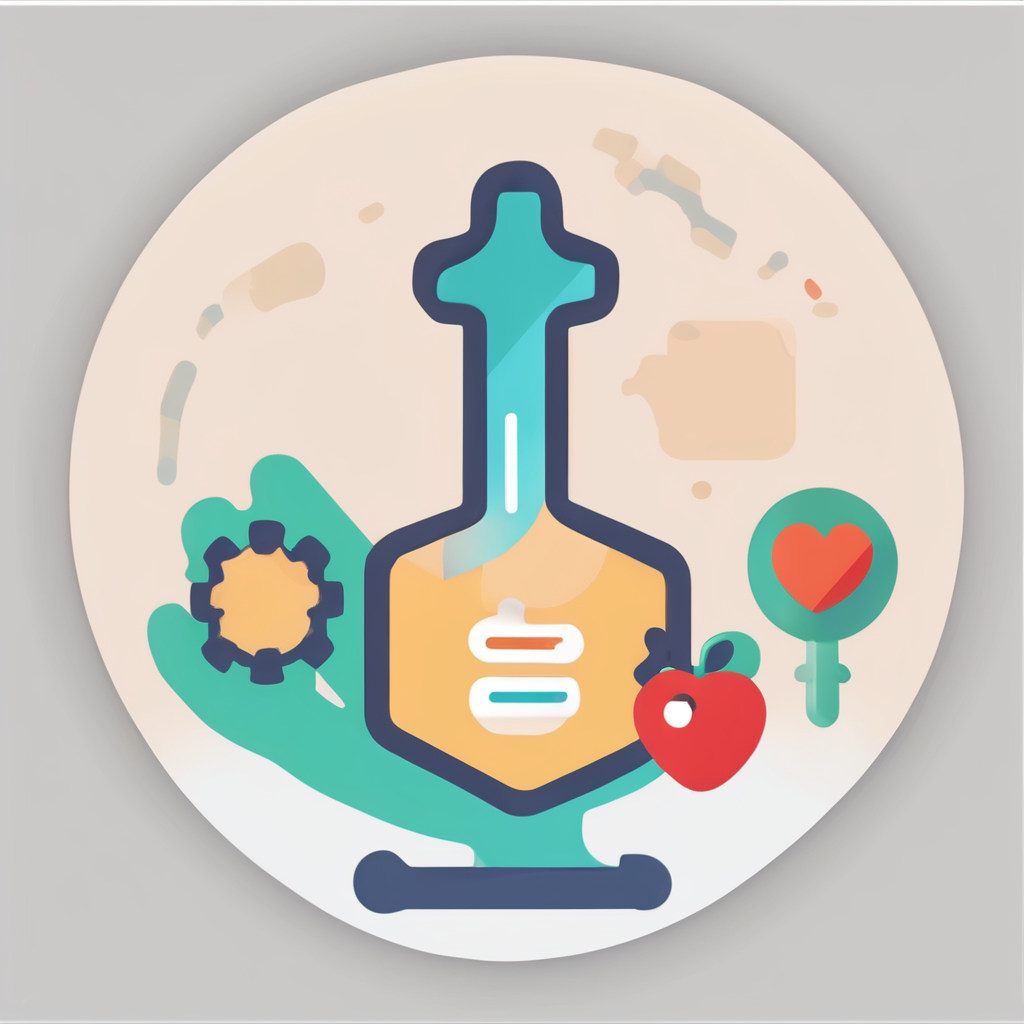Overview of Pregnancy’s Influence on Long-Term Health
A woman’s pregnancy health risks extend beyond the gestational period, influencing her long-term effects of pregnancy and overall maternal health outcomes. Conditions such as gestational diabetes and preeclampsia not only pose immediate dangers but also increase the risk of developing chronic diseases later in life, including type 2 diabetes and hypertension. Understanding these connections helps in anticipating and managing potential complications.
Studies reveal that pregnancy acts as a physiological “stress test,” revealing underlying predispositions to cardiovascular disease. Women with hypertensive disorders during pregnancy face significantly elevated risks of stroke and heart disease decades afterward. Additionally, pregnancy-related complications can impact renal function and metabolic health.
Also to read : What are the best practices for mental health during pregnancy?
The long-term effects of pregnancy also encompass mental health, where postpartum depression and anxiety may influence lifelong psychological wellbeing. Preconception health and prenatal care significantly affect these outcomes, emphasizing the importance of early intervention.
Proactive monitoring of maternal health outcomes after pregnancy, particularly in high-risk individuals, enables timely detection and prevention of chronic conditions. Tailored healthcare strategies focusing on lifestyle modification, routine screening, and ongoing support are essential to mitigate risks stemming from early pregnancy complications. These approaches ensure better health trajectories for women well beyond childbirth.
This might interest you : What Are the Latest Developments in Pregnancy Health Care in the UK?
Cardiovascular Health and Pregnancy
Exploring pregnancy’s impact on long-term heart health
Pregnancy can significantly affect cardiovascular health, especially in women who experience complications such as preeclampsia and gestational hypertension. These conditions not only present immediate risks during pregnancy but also substantially increase the likelihood of developing heart disease later in life.
Preeclampsia, a disorder characterized by high blood pressure and signs of organ damage during pregnancy, is a critical indicator of cardiovascular risks. Studies show women with preeclampsia face nearly double the risk of ischemic heart disease and stroke in years following pregnancy. The mechanism involves changes in vascular function and persistent hypertension, which may not resolve postpartum.
Gestational hypertension, defined as high blood pressure arising during pregnancy, similarly contributes to long-term cardiac concerns. Women with this condition often develop chronic hypertension, a major risk factor for heart disease. The elevated blood pressure stresses the cardiovascular system, leading to vascular remodeling and increased arterial stiffness.
Understanding these associations is crucial for monitoring women’s heart health after pregnancy. Early intervention strategies, such as lifestyle modification and targeted therapies, can mitigate the risk of future cardiovascular disease in those with a history of pregnancy-related hypertension or preeclampsia. Recognizing the lasting impact of pregnancy complications enables proactive care to safeguard women’s heart health long term.
Increased Diabetes Risk After Pregnancy
Pregnancy can significantly impact blood sugar regulation, particularly when gestational diabetes occurs. Women diagnosed with gestational diabetes face a higher risk of developing type 2 diabetes post-pregnancy. This is because gestational diabetes reveals an underlying predisposition to insulin resistance, which often persists or worsens after delivery.
How does gestational diabetes affect future diabetes risk? It temporarily disrupts the body’s ability to process glucose effectively. While blood sugar levels often return to normal after childbirth, the physiological strain during pregnancy can unveil latent metabolic issues. Studies indicate that up to 50% of women with gestational diabetes later develop type 2 diabetes within 5 to 10 years.
To mitigate this risk, consistent monitoring of blood sugar levels postpartum is essential. Lifestyle changes focusing on diet and exercise are crucial prevention strategies. Regular screening through glucose tolerance testing helps detect early signs of impaired blood sugar regulation. Women are encouraged to maintain healthy weight and engage in physical activity to reduce their risk.
Understanding the link between gestational diabetes and type 2 diabetes post-pregnancy empowers women to take proactive steps. Early intervention can delay or prevent progression, making awareness and follow-up an integral part of care for those with prior gestational diabetes.
Mental Health Considerations Post-Pregnancy
Understanding emotional well-being after childbirth
Postnatal mental health is a critical aspect often overshadowed by physical recovery after childbirth. Research indicates that postpartum depression risks affect approximately 1 in 7 women, underscoring the need for attention to psychological health in the postnatal period. These risks are not limited to mood disorders; anxiety and stress-related conditions can also emerge, impacting the mother’s overall recovery and family dynamics.
Pregnancy and mental well-being are deeply interconnected. Complications during pregnancy or delivery can contribute to long-term mental health effects. For example, traumatic birth experiences may trigger post-traumatic stress disorder (PTSD), while hormonal fluctuations can exacerbate mood instability. It is essential to recognize that mental health challenges post-pregnancy can persist beyond the immediate postpartum period, sometimes lasting months or years if left unaddressed.
Healthcare providers should screen for signs of postnatal mental health issues routinely, enabling early intervention. Support systems involving partners, family, and professionals play a vital role in mitigating postpartum depression risks. Emphasizing mental well-being at this stage helps foster healthier outcomes for both mother and child, highlighting that recovery extends well beyond the physical realm.
Impact on Other Chronic Conditions
Understanding the ripple effects after childbirth
Pregnancy can influence the risk of developing autoimmune diseases and thyroid disorders later in life. Research shows that the immune system undergoes significant changes during pregnancy, which may trigger or exacerbate autoimmune conditions postpartum. Women with a history of pregnancy autoimmune risk should be aware that these immune shifts can lead to new or worsening symptoms after childbirth.
Longitudinal studies highlight a notable incidence of thyroid disease after pregnancy, particularly autoimmune thyroiditis. This condition can manifest months or years postpartum, underscoring the importance of early detection. Symptoms often overlap with postpartum fatigue or mood changes, making accurate diagnosis essential.
Because of these risks, long-term health monitoring after childbirth is crucial for women, especially those with a family history or previous autoimmune issues. Regular screening for thyroid function and autoimmune markers can facilitate timely intervention, improving health outcomes.
Establishing a follow-up care plan that includes periodic assessments helps identify evolving chronic conditions early. This proactive approach supports managing symptoms effectively and reduces complications. Women and healthcare providers alike benefit from increased awareness of these risks, empowering informed decisions on postpartum care.
Child Health Outcomes Related to Maternal Pregnancy Health
Maternal health during pregnancy plays a pivotal role in shaping infant outcomes and long-term child health. Research consistently reveals that poor maternal pregnancy health conditions—such as inadequate nutrition, chronic stress, or gestational diabetes—can contribute to adverse health risks in offspring. This link is often explained by the concept of fetal programming, wherein the intrauterine environment influences the development and future physiological responses of the fetus.
Intergenerational health risks emerge when maternal factors affect the child’s susceptibility to chronic diseases such as obesity, diabetes, and cardiovascular conditions. These effects may persist beyond infancy and even into adulthood, highlighting the critical importance of monitoring and improving maternal health.
Studies demonstrate that maintaining optimal maternal health parameters reduces the likelihood of low birth weight, preterm birth, and neurodevelopmental delays. Additionally, maternal stress hormones can cross the placental barrier, altering fetal brain development and increasing vulnerability to mental health disorders.
Understanding the mechanisms behind maternal health and infant outcomes enables healthcare providers to implement early interventions. This proactive approach not only improves immediate infant health but also breaks the cycle of intergenerational health risks, fostering healthier generations to come.
Preventive Measures and Health Monitoring After Pregnancy
Ensuring lasting health beyond childbirth
Post-pregnancy health checkups are crucial for identifying and addressing any lingering or emerging issues after childbirth. Women are advised to schedule comprehensive evaluations that include blood pressure monitoring, glucose testing, and screening for postpartum depression. These screenings help detect conditions like hypertension and diabetes early, which may have developed or worsened during pregnancy.
Lifestyle changes after pregnancy play a significant role in reducing future health risks. Adopting a balanced diet rich in nutrients supports recovery and long-term wellness. Regular physical activity, tailored to postpartum recovery, improves cardiovascular health and aids weight management. Prioritizing restful sleep and managing stress are equally important to enhance overall resilience.
Reducing future health risks hinges on continued vigilance. Women with pregnancy complications—such as gestational diabetes or preeclampsia—should maintain regular follow-ups with healthcare providers to monitor cardiovascular and metabolic health. Proactive health habits formed post-pregnancy can mitigate risks of chronic diseases later in life, promoting sustained wellbeing.
Together, post-pregnancy health checkups and mindful lifestyle adjustments form a comprehensive approach that supports mothers’ health far beyond delivery, enabling them to thrive in the years ahead.



